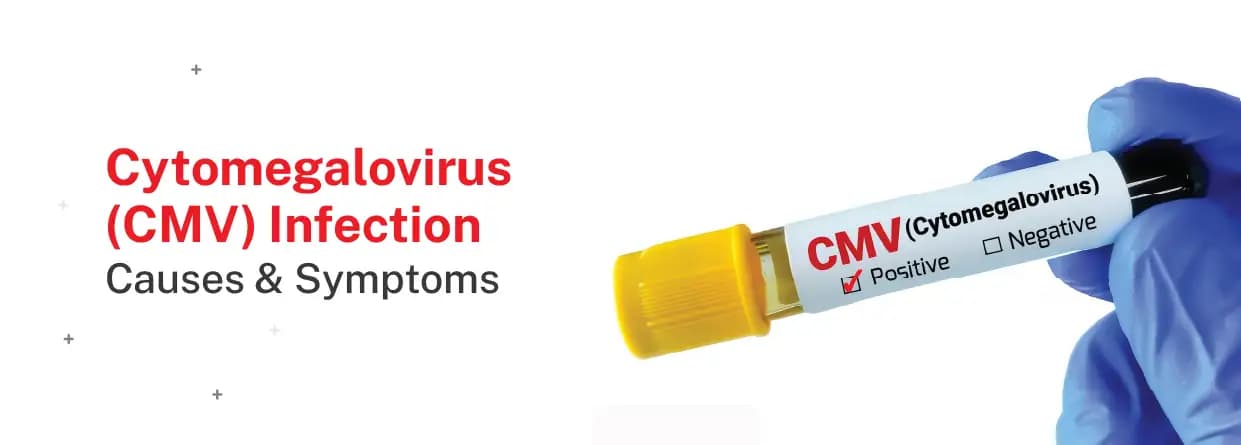
It’s a common virus that is a member of the herpesvirus family. It affects people of all age groups, however, it might cause health complications for infants, expectant mothers, and those with compromised immune systems.
Have you recently given birth, but your joy was dampened by the news that your child has Cytomegalovirus (CMV)? Most parents find themselves in a similar situation when a child is diagnosed with this condition. It’s a common virus that is a member of the herpesvirus family. It affects people of all age groups, however, it might cause health complications for infants, expectant mothers, and those with compromised immune systems.
According to the estimates of the National Institute of Health, it affects 83% of the general population, 86% of women of childbearing age, and 86% of donors of blood or organs globally. CMV is still a little-known but significant viral infection that can have major health effects, even with its high prevalence. If you or your loved one are diagnosed with CMV, book your appointment with one of the best Pediatrics at the CK Birla Hospitals in Jaipur to receive the best course of treatment.
This blog involves important aspects of CMV such as symptoms, types, causes, risks, diagnosis, treatment options, and precautionary measures. The aim is to offer CMV patients the understanding and resources they require to manage this condition with the proper care and attention.
Cytomegalovirus (CMV) is one of the herpes virus types that is common around the world. It is related to the varicella-zoster virus, causing chickenpox and shingles, and the herpes simplex virus, which causes cold sores and genital herpes.
Although anyone can contract CMV, the virus does not fully mature in the body for a very long time after the original infection. The majority of people with strong immune systems remain unaware after contracting CMV as they rarely experience any symptoms.
CMV can reactivate in people who have weak immune systems including organ transplant recipients, HIV/AIDS patients, and babies whose mothers got infected with the virus while they were pregnant.
Some of the common cmv symptoms are age, immunological condition, and whether the infection is primary or reactivated. The main symptoms are as follows:
Depending on when and how the infection develops, CMV can show up in different forms. The primary types consist of:
Direct contact with bodily fluids that are infected with CMV can spread the infection, including:
CMV is usually safe in healthy people, but it presents serious risks or complications to the following groups:
A healthcare expert involves the combination of testing and medical assessment is used to confirm the diagnosis of CMV. Here are some of the important diagnostic approaches involved:
The treatment course for CMV is identified by the patient's immunological condition and the severity of the infection. Here are some of the involved treatment options:
Preventing CMV infection, particularly in high-risk groups, involves several strategies:
Most people will at some point in their lives come into contact with the cytomegalovirus, which usually has no lasting effects. Still, CMV can be extremely dangerous for high-risk groups, including infants, expectant mothers, and people with compromised immune systems. To effectively manage this condition, one must have a thorough understanding of its symptoms, types, causes, risks, and prevention techniques.
Initial diagnosis and prompt treatment can alleviate difficulties while maintaining proper hygiene and taking preventive steps can drastically lower the chance of infection. Speak with a healthcare professional to determine the best course of action if you or a loved one has been diagnosed with CMV or is at risk for it.
Cytomegalovirus (CMV) is transmissible. Bodily fluids like blood, urine, semen, saliva, and breast milk are the primary sources of transmission. The virus can be transmitted by close contact, such as kissing or coming into contact with an infected person sexually. However, even when sick, healthy people frequently don't exhibit any symptoms.
People with compromised immune systems such as individuals living with HIV/AIDS, organ transplant recipients, expectant mothers, and neonates, are more prone to severe complications that result from Cytomegalovirus (CMV). Healthcare professionals and daycare providers are also at a higher risk of contracting the virus.
Coming into contact with infected bodily fluids, such as saliva, blood, urine, semen, and breast milk, is how cytomegalovirus (CMV) is transmitted. Pregnant women should be concerned about it since it can be transferred from a mother to her unborn child during pregnancy, childbirth, or breastfeeding.
There is no known cure for cytomegalovirus (CMV), antiviral drugs can be used to treat its symptoms and consequences, particularly in those with compromised immune systems. Treatment is rarely necessary for healthy individuals because the virus usually remains dormant and causes no problems.
Cytomegalovirus (CMV) infection can be harmful, especially to young children, expectant mothers, and those with compromised immune systems. Serious health concerns, including organ damage in immunocompromised people and developmental difficulties in babies, can result from it.
The usual method for diagnosing cytomegalovirus (CMV) is blood testing that looks for the virus's DNA or CMV antibodies. Samples of tissue, saliva, or urine may also be analysed in specific circumstances. If CMV is detected, pregnant patients and babies may be subjected to more focused testing.
Similar Paediatrics Blogs
Book Your Appointment TODAY
© 2024 RBH Jaipur. All Rights Reserved.